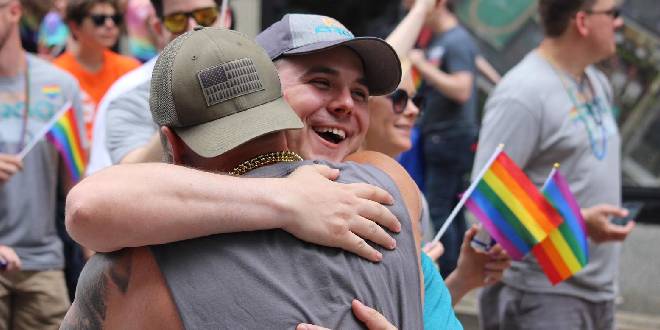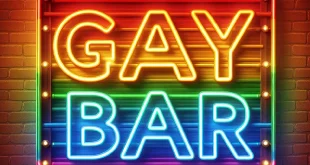Before you think about how to come out to your family, what’s most important is that you feel a sense of acceptance in yourself about your sexual orientation and/or gender identity and your reasons for coming out. As you begin to acknowledge to yourself that you are lesbian, gay, bisexual or trans, it is very common to experience guilt, shame, doubt and confusion.
The effects of a lifetime of negative social messages, discrimination and, for some, violence cannot be erased overnight. This can be a difficult time and it can be helpful to talk to a counsellor or friend to help prepare you emotionally to come out. Involvement in a local coming out group may also help you with your own process.
Even in a climate where the LGBTI community has begun to fight back and demand rights, recognition and protection under the law, social attitudes and belief systems continue to discriminate. Although social attitudes such as homophobia and transphobia affect all of us, many members of the LGBTI community confront other forms of discrimination as well, such as racism, ageism, sexism, etc. All or some of these social attitudes may influence your coming out experience.
Although homophobia and transphobia exist in all cultures, the degree of acceptance of LGBTI identities varies across cultural and religious communities. For some of us, the loss of family and/or membership in our cultural community, silence, hostility or even violence are very real consequences to coming out. If this is your reality, you need to realistically assess the risks involved. If you decide to come out, but are concerned about your family’s reaction, you should work with a counsellor or friend to develop a plan that will ensure your safety.
Family reactions
As you begin to feel the first inklings of pride and entitlement to be who you are, you can’t help feeling that family, friends and the rest of the heterosexual world will see you as different. One of the things we know is that prejudice and discrimination do change over time and it is usually exposure to that which is different that helps to change negative attitudes. When it comes to family members and in particular parents finding out they have a LGBTI child, it is those historically negative ideas about homosexuality that first concern them.
Some thoughts that cross many parents’ minds include:
“If being gay is sick, perverted and unnatural, and my child says they’re gay, I must have been a bad parent.”
“Lesbians are treated badly in employment and housing situations and lead isolated lonely lives outside the mainstream. I don’t want my child to suffer.”
“Being trans is seen as sick and perverted by many people. How will other family, friends and work mates see me if my child is trans?”
Dealing with cultural issues
If you have strong ties to a particular cultural community, your parents may be concerned with how your coming out will be perceived by the community and how it will affect their position within it. Many individuals report that cultural values, such as not talking about or displaying emotions, get in the way of them sharing their sexual orientation or gender identity with their parents. In many cultural communities, being LGBTI is considered to be a North American problem, thus the preferred response to your coming out may be to deny your reality and to become more strict about having you conform to cultural norms and expectations. Coming out may also feel like you need to choose between your cultural identity and your sexual orientation. This is even more difficult when you experience the LGBTI community as being insensitive to your cultural identity. There are groups and associations for LGBTI individuals from specific cultural communities. They can help you find culturally appropriate information, images and supports for you and your family.
If you are coming out as trans
Although years of activism have improved the lives of many members of the LGBTI community, trans individuals are still the focus of much discrimination and violence. If you are coming out to your parents as trans, you may face challenges relating to the lack of information and positive images that are available regarding trans folks, particularly individuals from specific cultural communities. The lack of information available about trans people and their experiences is directly related to the confusion and hostility that many parents may feel when their child comes out as trans. Trans identities also lead to confusion regarding the issue of sexual orientation, so your parents may wonder whether your new gender identity also means that you are gay or lesbian. Transphobia can combine with homophobia to make coming out a very challenging and anxiety-provoking experience.
Consult the list of resources on this website for books and articles that can help you come out to your parents, as well as the list of links that we have provided for trans positive services and web sites.
Most parents want the best for their children and if they know that what’s best is to be true to yourself and live who you are, they will gradually come to accept, not only that they have a gay, lesbian, bisexual or trans child and that it wasn’t their fault, but that their child will live a fulfilling life.
Before you tell your family
Before you tell them, you need personal time to come to terms with your new self-understanding. It’s also helpful to have support from others who have gone through this process. Keep in mind there is likely at least one other gay, lesbian or bisexual person in your family tree, either from previous generations or who is currently alive. One of the fun aspects of coming out to yourself is going over your family tree and identifying those who may have been LGBTI. This is often not the case for trans folks as they are still fighting for the right to live out and proud.
With your new awareness you may discover there were clues all along that you didn’t recognize because of secrecy and shame. We often hear from individuals, struggling with coming out to their family, that they fear the news will “kill” their parents. Although it may be difficult in the beginning and your parents and family may initially reject you , most, particularly those who had a good relationship with their children, accept the news over time.
Many people who’ve come out also find that their relationship with their parents eventually improves because of the increased openness and honesty that comes with sharing this knowledge. Many also experience a great sense of relief in knowing that they no longer need to keep their true identity a secret.
It is important that you communicate to your parents that you love them, are not trying to hurt them and that, whether you are coming out as gay, lesbian, bisexual or trans, you are still the same person that they love. Consider sharing with them your story of coming out to yourself, as well as the resources that you found helpful during this time. This may include books, films, friends, allies, and counselors. Above all, be patient. Recall how long it took for you to come to terms with your new identity and give your parents the time to do the same.
There are many ways you can tell your family:
- The most common first step for many LGBTI is to confide in a sibling (if you have one), cousin, uncle or aunt; one who you feel will accept and support you in telling other family members.
- When you’re ready to tell your parents, you might want to start with the parent to whom you feel the closest.
- Instead of telling them in person, another option is to write your parents a letter. This gives your parents time to reflect on what you have told them and decide how to respond.
- When you meet with your parents, either after you’ve sent a letter, or to tell them for the first time, you might want to consider bringing along a supportive friend or family member.
 Lesbian, Gay, Bisexual, Transgender & Intersex News Lesbian News, Gay News, Bisexual News, Transgender News, Intersex News, LGBTI News
Lesbian, Gay, Bisexual, Transgender & Intersex News Lesbian News, Gay News, Bisexual News, Transgender News, Intersex News, LGBTI News




